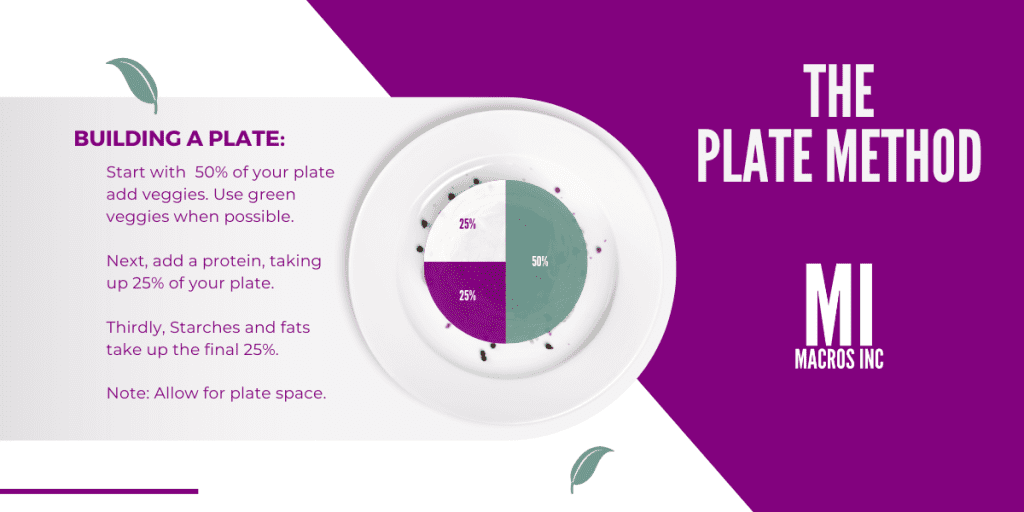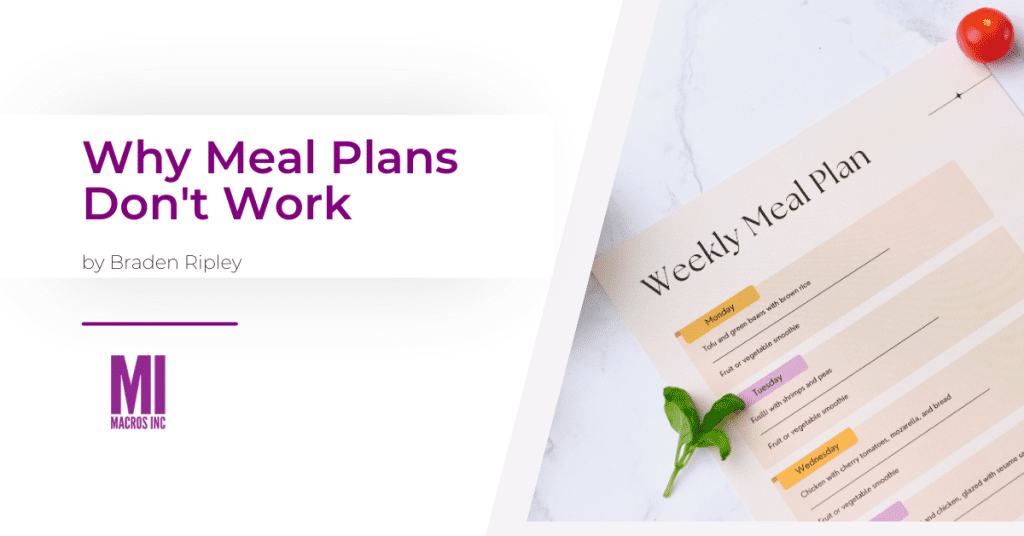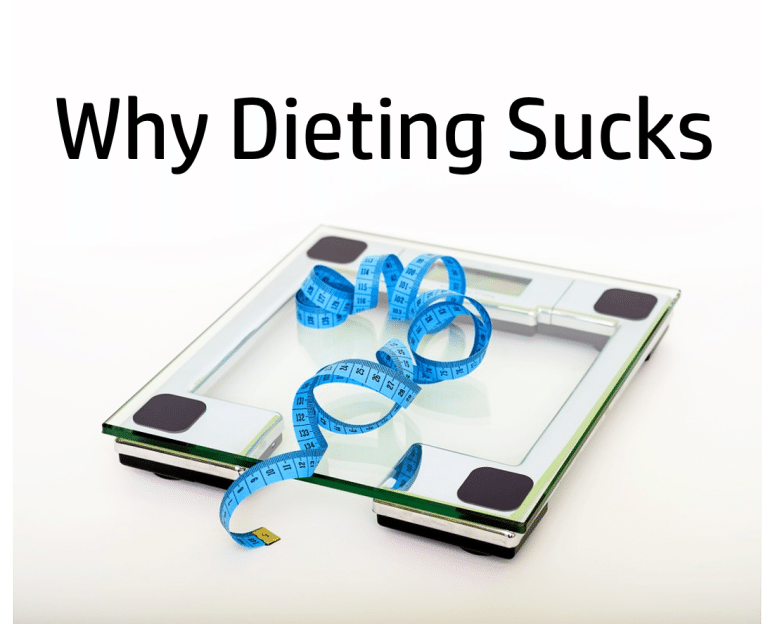Maintaining a healthy weight is important for overall health and well-being. While there are many approaches to weight loss, meal plans have become a popular tool for individuals looking to shed some pounds.
However, while meal plans may be effective in the short term, they often fail to produce long-term results.
Today, we will explore why meal plans don’t work for long-term weight loss, and why autonomy, awareness, and education are important for sustainable weight management.
Jump to a Topic
What is a Meal Plan?
First, let’s define what a meal plan is. A meal plan is a structured schedule that outlines what foods you should eat and when. Meal plans typically provide a specific number of calories, macronutrient ratios, and portion sizes for each meal and snack.
The idea behind meal plans is to remove the guesswork and decision-making involved in choosing what to eat. Instead, the plan tells you exactly what to eat, making it easier to stay on track.
Do Meal Plans Work For Weight Loss?
When it comes to weight loss, many individuals seek guidance and structure to help them achieve their goals. Meal plans are a popular choice for those looking to shed some pounds. However, it’s essential to understand that while meal planning yourself can be beneficial, relying solely on a pre-made meal plan may not lead to sustained weight loss success.
Pre-made meal plans don’t work long-term as they remove a critical component of healthy eating: autonomy. When you follow a meal plan, you are not making decisions about what to eat based on your hunger, cravings, or preferences.
Instead, you are following a strict set of rules that may not align with your personal tastes or lifestyle. Over time, this lack of autonomy can lead to feelings of deprivation, boredom, and frustration, which can increase the likelihood of overeating or binging on unhealthy foods.
Furthermore, meal plans do not teach you how to make healthy food choices on your own. While the plan may tell you what to eat, it does not provide you with the knowledge and skills to choose healthy foods in real-life situations.
This means that when you stop following the meal plan, you may not know how to make healthy choices on your own. As a result, you may fall back into old eating habits and regain any weight you lost.
Alternatives to Following a Meal Plan
So, if meal plans are not the answer, what is? The answer lies in developing a sense of autonomy and self-awareness around your eating habits. This means learning to listen to your body’s hunger and fullness cues, making informed decisions about what foods to eat, and finding ways to enjoy healthy eating that align with your preferences and lifestyle.
Mindful Eating
One way to develop this sense of autonomy is to practice mindful eating. Mindful eating involves paying attention to the present moment and your body’s internal signals while you eat. It involves savoring each bite, noticing the flavors and textures of your food, and taking time to chew and enjoy your meal.
By practicing mindful eating, you can learn to tune in to your body’s signals and make more informed decisions about what and how much to eat.
Develop Your Knowledge of Nutrition and Healthy Eating
Another way to develop autonomy is to learn about nutrition and healthy eating. This means understanding the role of macronutrients (carbohydrates, proteins, and fats) and micronutrients (vitamins and minerals) in your diet, and how to balance them for optimal health. It also means learning how to read food labels, choose whole, unprocessed foods, and prepare healthy meals at home.
Browse our Nutriwiki and blog to be sure to gain a deeper understanding of these topics!
The Plate Method
One Macro Diet Plan you could use is the utilization of the Plate Method. The Plate Method creates structure in your eating by incorporating Vegetables, Proteins, and Carbs/Fats in a manner that aligns with a healthy and balanced diet, but also helps you hit your calorie and macronutrient targets.
By building your meals around the plate method, you not only create the ability for creativity in your preparation and cooking, but it is also budget friendly, and can lead to long term and sustained progress through structure and predictability.

Wrap Up
While meal plans may be helpful in the short term, they are not a sustainable solution for long-term weight management. To achieve sustainable weight loss, it’s important to develop a sense of autonomy and self-awareness around your eating habits.
This involves practicing mindful eating, learning about nutrition, and finding ways to enjoy healthy eating that align with your preferences and lifestyle. By taking a more holistic approach to healthy eating, you can achieve lasting results and improve your overall health and well-being.
Try our nutrition coaching, for free!
Be the next success story. Over 30,000 have trusted Macros Inc to transform their health.
Simply fill out the form below to start your 14-day risk-free journey. Let's achieve your goals together!


